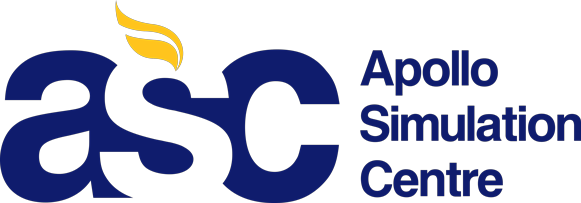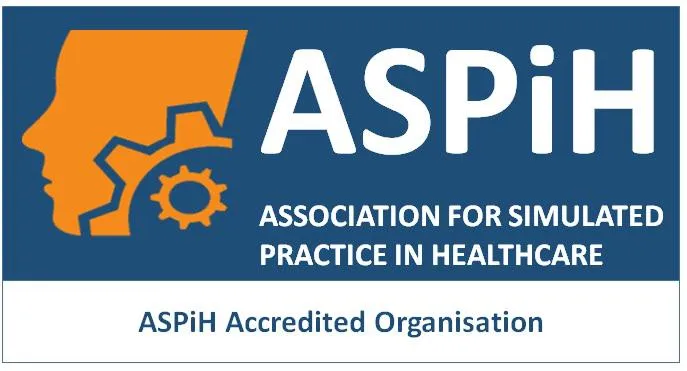Top Emergency Medicine Courses To Advance Your Skills
In the ever-evolving field of healthcare, emergency medicine courses play a pivotal role in ensuring that medical professionals are equipped with the latest knowledge and skills to provide immediate and effective care.
Whether you’re a seasoned practitioner or new to the field, engaging in short-term emergency medicine skilling courses can significantly enhance your ability to respond to critical situations.
This comprehensive guide highlights some of the top emergency medicine courses globally and introduces you to the exceptional programs offered by the Apollo Simulation Center (ASC).
By the end of this read, you’ll not only understand the importance of these courses but also feel compelled to take the next step in advancing your career.
Global Top Emergency Medicine Courses:
1. Advanced Cardiac Life Support (ACLS):
Course Duration: 2-3 days
Course Renewal: Every 2 years
This certification is required for most healthcare professionals and is essential for those managing patient cardiovascular emergencies.
The course focuses on:
- Advanced Airway Management: Includes techniques for securing and maintaining airways.
- Cardiac Arrest Protocols: Covers updated algorithms for resuscitation.
- Pharmacology in Cardiac Emergencies: Includes medication administration and dosing.
- Team Dynamics During Resuscitation: Involves effective communication and leadership skills.
2. Advanced Trauma Life Support (ATLS):
Course Duration: 2-3 days
Certification Validity: 4 years
Recognized as the gold standard for trauma care, ATLS was developed by the American College of Surgeons.
This course provides a systematic approach to trauma patients, including:
- Primary and Secondary Trauma Surveys: Comprehensive assessment protocols.
- Shock Management: Identification and treatment strategies.
- Head Trauma Management: Neurological assessments and interventions.
- Musculoskeletal Trauma: Handling fractures and dislocations.
3. Emergency Medicine Foundation Certificate (EMFC):
Course Duration: 6-12 months
Course Format: Theoretical and practical components
This comprehensive training is ideal for primary care physicians aiming to broaden their expertise in emergency medicine.
This course covers:
- Emergency Procedures: Skill development in common ER interventions.
- Critical Care Basics: Introduction to managing critically ill patients.
- Pediatric Emergencies: Specialized care for younger patients.
- Disaster Management: Preparedness for large-scale emergencies.
4. Pediatric Advanced Life Support (PALS):
Course Duration: 2 days
Recertification: Every 2 years
PALS focuses on pediatric emergency care essential for providers working with children:
- Pediatric Assessment: Recognizing signs of distress.
- Respiratory Emergencies: Management of airway and breathing issues.
- Shock Recognition and Treatment: Early intervention techniques.
- Resuscitation Techniques: Age-appropriate protocols.
5. Point-of-Care Ultrasound (POCUS) Courses:
Duration: 1-5 days
Requirement: Hands-on practical training
With its growing importance in emergency medicine, POCUS enhances diagnostic capabilities at the bedside.
The curriculum includes:
- FAST Exam: Focused assessment with sonography for trauma.
- Cardiac Assessment: Evaluating cardiac function and structure.
- Vascular Access: Ultrasound-guided cannulation techniques.
- Lung Ultrasound: Detecting pneumothorax, pleural effusions, etc.
6. Emergency Medicine Critical Care Course:
Course Duration: 1-2 weeks
Course Format: Online and in-person options
This advanced training is designed for ER physicians seeking to deepen their understanding of critical care aspects. Key topics include:
- Mechanical Ventilation: Settings and management.
- Hemodynamic Monitoring: Interpreting vital signs and trends.
- Sepsis Management: Early recognition and treatment protocols.
- Critical Procedures: Advanced interventions.
7. Disaster Medicine And Preparedness Course:
Course Duration: 3-5 days
Course Updates: Regular revisions recommended
Essential for managing mass casualties, this course prepares professionals for large-scale emergencies through:
- Triage Protocols: Prioritizing patient care in crises.
- Mass Casualty Incident Management: Coordination and response.
- Chemical/Biological Threats: Recognition and decontamination.
- Hospital Disaster Planning: Developing effective strategies.
8. Emergency Airway Management Course:
Course Duration: 2-3 days
Course Format: Extensive simulation-based training
This specialized course focuses on airway emergencies, covering:
- Difficult Airway Algorithms: Structured algorithms for managing difficult airways
- Surgical Airways: Techniques for establishing surgical airways to enable life-saving procedures
- Video Laryngoscopy: Enhance visualization and accuracy in airway management during critical situations
- Airway Assessment: Develop comprehensive assessment techniques
9. Toxicology In Emergency Medicine:
Duration: 2-5 days
Course Format: Online modules are often available
Concentrating on poisoning and overdose management, this course covers key components such as
- Common Toxidromes: Identify and manage various toxidromes
- Antidote Administration: Treatment for patients experiencing toxic exposures
- Environmental Toxins: Gain knowledge about environmental toxins sources, effects, and management strategies in emergency scenarios.
- Substance Abuse Emergencies: Recognize and respond to substance abuse emergencies
10. Emergency Medicine Review Course:
Course Duration: 5-7 days
Course Format: Available in both online and offline formats
This comprehensive review course is ideal for board preparation, covering:
- Case-based Learning: Enhance critical thinking and decision-making skills in emergency medicine
- Evidence-based Protocols: Latest evidence-based guidelines
- Recent Advances: Latest developments in emergency medicine
- Practice Questions: Reinforce your knowledge and prepare for assessments
Professional Development Benefits:
Participating in these courses offers numerous professional development benefits, including:
- Career Advancement Opportunities: Enhance your career prospects through specialized training and certifications.
- Enhanced Clinical Competence: Improve your clinical skills and knowledge for better patient care.
- Networking With Peers: Connect with fellow professionals to share insights and experiences.
- CME Credits: Earn Continuing Medical Education credits to maintain licensure and stay current.
- Improved Patient Outcomes: Apply advanced techniques to achieve better patient health outcomes.
How To Choose The Right Course?
Selecting the appropriate emergency medicine course is crucial for maximizing your professional development. Here are pivotal factors to consider:
Your Current Skill Level:
Assess your knowledge and experience in emergency medicine to ensure you choose a course that matches your competency. This will help you build on your strengths while addressing any gaps in your training.
Career Goals:
Identify your long-term career aspirations, such as specializing in a particular area of emergency medicine or advancing into leadership roles. Choose courses that align with these goals to enhance your qualifications and career trajectory.
Time Commitment:
Consider how many hours you can genuinely devote to a course. Consider both the duration of the course and any additional study or practice time required, ensuring it fits within your schedule without compromising your other responsibilities.
Cost Considerations:
Analyze the financial investment required for each course, including tuition fees, materials, and potential travel expenses. Balance the cost against the potential benefits and returns on investment in terms of career advancement and skills gained.
Accreditation Status:
Verify that the course is accredited by relevant professional bodies. Accreditation ensures that the program meets industry standards and that the qualifications you earn will be recognized by employers and licensing boards.
Course Format Preference:
Consider whether you prefer in-person training, online courses, or a hybrid model. Your learning style and availability will influence which format is most effective for you, so choose one that will facilitate your engagement and retention of information.
Apollo Simulation Center’s Exceptional Courses
Ascending to new heights in emergency care requires top-tier training. The Apollo Simulation Center (ASC) offers specialized courses that blend theoretical knowledge with immersive hands-on experience.
1. Refresher Hands-On Course (RHOC):
Website: RHOC at ASC
The Refresher Hands-On Course (RHOC) at Apollo Simulation Centre is designed to enhance procedural competence and confidence in essential medical skills. The course covers:
- ABG essentials
- ACLS
- Basic airway skills
- Basic surgical skills
- BLS
- Cannulation basics
- Chest X-ray essentials
- Crisis team training
- ECG essentials
This rigorous 3-day course aids medical professionals in refining their skills, practicing lifelike simulators, and building their leadership and teamwork capabilities.
2. Surgical Hands-On Refresher Program (SHARP):
Website: SHARP at ASC
The Surgical Hands-On Refresher Program (SHARP) at Apollo Simulation Centre offers a structured learning path. From the information provided in the images, SHARP includes certifications and competencies in the following areas:
Core Competencies:
- Inter-Professional Trauma Team Training (IPTTT):
- Focused on collaborative trauma management techniques.
- Basic Surgical Skills:
- Includes incision making, handling surgical instruments, and catheterization.
- Covers advanced suturing, knotting, and basic operative etiquette.
- Perioperative Problem-Based Learning (PoPBL):
- Efficient management of perioperative problems.
- Emphasis on patient optimization, risk stratification, and effective decision-making.
- Additional Skills Covered
- Mastery in interpreting ECGs, chest X-rays, and arterial blood gases (ABGs).
- Enhancing communication and teamwork in an operating theater environment.
- Trauma care techniques, including initial assessment and management protocols.
- Understanding medico-legal responsibilities.
3. Crisis Resource Essentials Workshop (CREW)
Website: CREW at ASC
The Crisis Resource Essentials Workshop (CREW) at Apollo Simulation Centre is an advanced medical training program designed to equip healthcare professionals with vital skills in acute care through simulation-based learning. The course covers:
- Point of Care Ultrasound (POCUS): Training to enhance diagnostic accuracy.
- Interventions Under Ultrasound Guidance: Skills development for ultrasound-guided procedures.
- Mechanical Ventilation Essentials: Understanding ventilation setups, indications, settings, and troubleshooting.
- Communication Principles: Mastering effective communication during patient interactions and crises.
- Crisis Team Training: Handling complex critical care scenarios and improving decision-making under pressure.
This 3.5-day course utilizes standardized crisis scenarios with high-fidelity manikins, video-recorded simulations with debriefs, and interactive learning methods to ensure participants are well-prepared for real-life medical emergencies and patient management.
Why Choose Apollo Simulation Center?
- State-of-the-Art Facilities: Experience cutting-edge simulation technology.
- Expert Instructors: Learn from seasoned professionals with vast clinical experience.
- Customized Learning: Courses tailored to meet individual learning needs.
- Accredited Programs: Certifications recognized globally.
- Flexible Scheduling: Programs designed to fit busy professional lives.
The Power of Short-Term Emergency Medicine Skilling Courses
Engaging in short-term emergency medicine skilling courses like those offered at ASC can:
- Boost Confidence: Be prepared for any emergency.
- Improve Patient Outcomes: Apply the latest protocols for better care.
- Advance Careers: Stand out with specialized training.
- Foster Lifelong Learning: Stay motivated to keep improving.
Take The Next Step In Your Career:
Your dedication to saving lives deserves the best training available. The Apollo Simulation Center is committed to empowering healthcare professionals like you with the skills and confidence needed to excel in emergency medicine.
Enroll Now in ASC’s Emergency Medicine Courses
- Visit Our Course Pages:
- Refresher Hands-On Course (RHOC)
- Surgical Hands-On Refresher Program (SHARP)
- Crisis Resource Essentials Workshop (CREW)
- Emergency Medicine Training Courses
- Life Support Courses
- Register Online:
- Quick Registration: Secure your spot in just a few clicks.
- Flexible Dates: Choose course dates that suit your schedule.
- Contact Us:
- Phone: +91 7358100986
- Email: sales@apollosimulation.com
Seize the Opportunity Today:
Don’t let this chance pass you by. By enrolling in ASC’s emergency medicine courses, you’re investing in your future and the well-being of the patients you serve.
Transform Your Skills. Elevate Your Care. Join ASC Now.
Your commitment to excellence deserves the finest training. The Apollo Simulation Center is here to guide you every step of the way. Enroll today!




